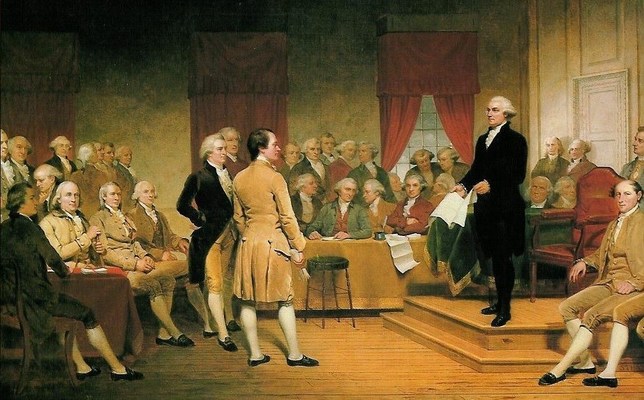Liberty-loving Americans are right to question claims that our Constitution needs to "stay up with the times" or that it's a "living, breathing document." The U.S. Constitution is the most successful legal document in the history of humankind, and the structure it describes has survived civil and world wars, economic depressions, and power-hungry leadership.
But even the men who drafted this document understood that, in some instances, their work would have to be amended. They knew they weren't perfect and issues would have to be addressed that they couldn't foresee.
As constitutional scholar Prof. Rob Natelson explained in a recent op-ed, they described several reasons the amendment process might have to be used:
There were at least four reasons the framers wanted the Constitution to be amendable. First, they recognized they might make drafting mistakes that needed correction later. Second, officials might abuse their power, and amendments could limit or end those abuses. Third, amendments could resolve disagreements over how to interpret some parts of the Constitution. Finally, conditions might evolve over time in ways of calling for change in the constitutional rules.
Their predictions turned out to be correct. We've amended the Constitution for all four of these reasons.
As matters have turned out, Americans have adopted amendments for all four reasons. For example, the 12th Amendment corrected a drafting omission in the original Constitution. The first 10 amendments—the Bill of Rights—were adopted partly to forestall abuses and partly to clarify the limits on federal power. Several amendments have addressed state abuses of power. The 11th Amendment overruled an erroneous Supreme Court interpretation. The 20th Amendment, which moved up Inauguration Day, was approved after modern transportation technology shortened the time needed to travel to the nation’s capital. The 19th Amendment—guaranteeing women the vote—was motivated partly by fairness. But it also reflected a social change: Advances in household technology and in medicine (birth control and longer female life expectancy) rendered women’s participation in politics far more practical than it had been in 1787.
But while the Framers knew their document would need revisions every once awhile, they never imagined what the Supreme Court would do to our founding document.
When people say the Constitution is a "living, breathing document" or that it needs to "stay up with the times," they're not talking about the legal amendment process laid out in Article V. That process is difficult and requires broad consensus across the country.
They're talking about constitutional amendment via Supreme Court ruling. Especially over the last 100 years, the Court has "read" rights into the Constitution that don't exist. They've expanded the power of the federal government and destroyed the balance of power between the states and D.C. Each of these decisions has effectively amended the Constitution without the approval of the American people.
We need to amend the Constitution, but we need to do it the right way. Not in order to "keep up with the times" but to get our nation back to its founding principles, to restrict the power of the federal government, and to ensure that the Court can't unilaterally dictate laws for millions of Americans in all 50 states.
Sometimes, the Constitution needs to be amended. That time is now, and over 4 million Americans have joined the fight.
Sign the Convention of States Petition below to show your support!






